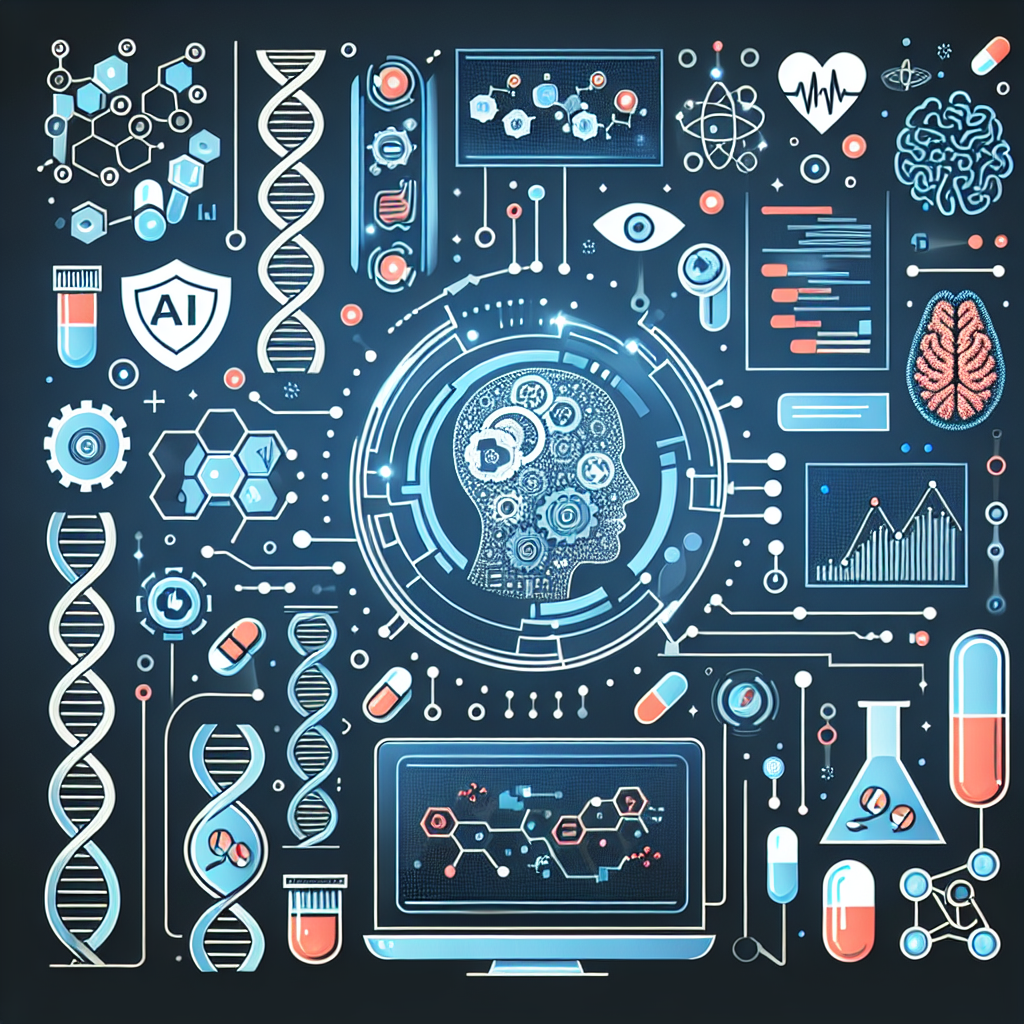In recent years, the pharmaceutical industry has experienced a significant shift towards personalized medicine and healthcare treatments. This shift has been made possible by advancements in artificial intelligence (AI) automation, which has revolutionized the way drugs are developed, tested, and prescribed. AI automation has played a crucial role in accelerating the discovery of new drugs, improving patient outcomes, and reducing healthcare costs. In this article, we will explore the role of AI automation in personalized medicine and healthcare treatments in the pharmaceutical industry.
AI automation in drug discovery
One of the most significant ways AI automation has impacted the pharmaceutical industry is in drug discovery. Traditionally, drug discovery is a time-consuming and expensive process that involves screening millions of compounds to identify potential drug candidates. However, with the help of AI automation, this process has been significantly accelerated. AI algorithms can analyze massive amounts of data, including genetic information, clinical trial data, and scientific literature, to identify potential drug targets and predict the efficacy of new drugs.
AI automation has also enabled researchers to design more targeted and effective drugs. By analyzing genetic and molecular data, AI algorithms can identify specific biomarkers and pathways that are associated with diseases. This information allows researchers to develop drugs that target these specific biomarkers, resulting in more personalized and effective treatments.
In addition to speeding up the drug discovery process, AI automation has also helped to reduce the cost of developing new drugs. By automating tasks such as data analysis, drug screening, and clinical trial design, AI algorithms can significantly reduce the time and resources required to bring a new drug to market. This cost savings can be passed on to patients, making drugs more affordable and accessible.
AI automation in personalized medicine
Personalized medicine is an approach to healthcare that takes into account individual variability in genes, environment, and lifestyle when developing treatment plans. By using AI automation, healthcare providers can analyze a patient’s genetic and molecular data to tailor treatment plans to their specific needs. This personalized approach can lead to more effective treatments, reduced side effects, and improved patient outcomes.
AI automation can also help healthcare providers make more accurate diagnoses and predictions. By analyzing a patient’s medical history, genetic information, and other relevant data, AI algorithms can identify patterns and trends that may not be apparent to human healthcare providers. This information can help healthcare providers make more informed decisions about treatment options, prognosis, and potential risks.
In addition to improving patient care, AI automation in personalized medicine can also help to streamline healthcare operations. By automating tasks such as data analysis, treatment planning, and patient monitoring, healthcare providers can free up time to focus on more complex and critical tasks. This can lead to more efficient healthcare delivery, reduced wait times, and improved overall patient satisfaction.
AI automation in healthcare treatments
AI automation has also revolutionized the way healthcare treatments are delivered. By using AI algorithms, healthcare providers can analyze patient data in real-time to identify potential risks, predict outcomes, and optimize treatment plans. This proactive approach can help to prevent complications, reduce hospital readmissions, and improve overall patient care.
AI automation can also help healthcare providers deliver more personalized and targeted treatments. By analyzing a patient’s genetic and molecular data, AI algorithms can identify specific biomarkers and pathways that are associated with diseases. This information can be used to develop treatments that target these specific biomarkers, resulting in more effective and personalized care.
Furthermore, AI automation can help to improve medication adherence and compliance. By using AI algorithms to monitor patient behavior, healthcare providers can identify patients who may be at risk of non-compliance and intervene before problems arise. This can help to improve patient outcomes, reduce healthcare costs, and enhance overall patient care.
FAQs
Q: How is AI automation being used in drug discovery?
A: AI automation is being used in drug discovery to analyze massive amounts of data, including genetic information, clinical trial data, and scientific literature, to identify potential drug targets and predict the efficacy of new drugs.
Q: How does AI automation improve personalized medicine?
A: AI automation improves personalized medicine by analyzing a patient’s genetic and molecular data to tailor treatment plans to their specific needs. This personalized approach can lead to more effective treatments, reduced side effects, and improved patient outcomes.
Q: How can AI automation help healthcare providers deliver more targeted treatments?
A: AI automation can help healthcare providers deliver more targeted treatments by analyzing a patient’s genetic and molecular data to identify specific biomarkers and pathways that are associated with diseases. This information can be used to develop treatments that target these specific biomarkers, resulting in more effective and personalized care.
Q: How does AI automation improve medication adherence and compliance?
A: AI automation improves medication adherence and compliance by using AI algorithms to monitor patient behavior and identify patients who may be at risk of non-compliance. Healthcare providers can then intervene before problems arise, leading to improved patient outcomes and reduced healthcare costs.

